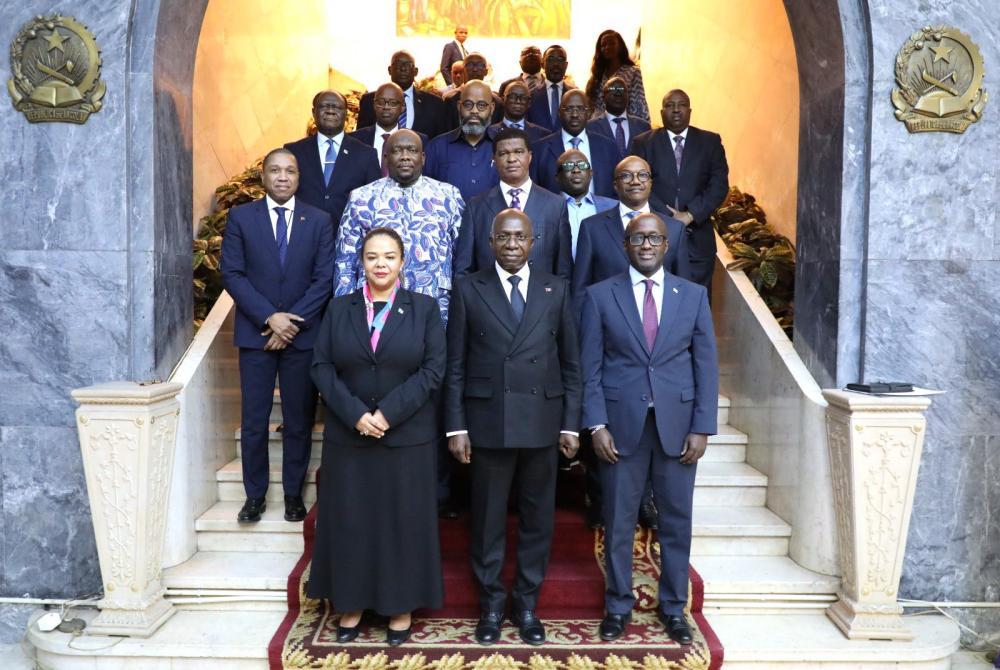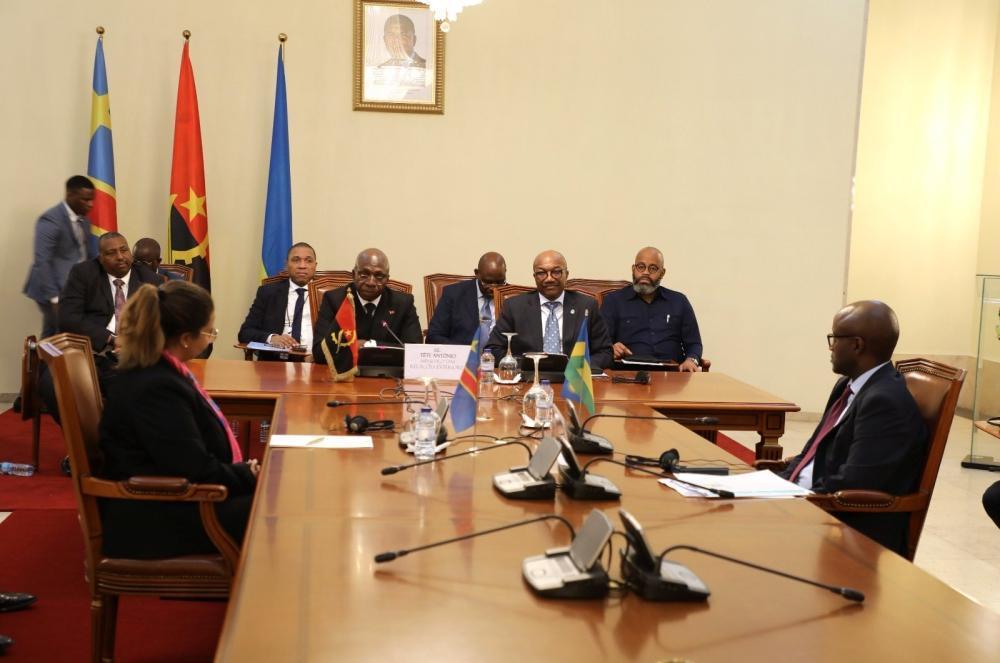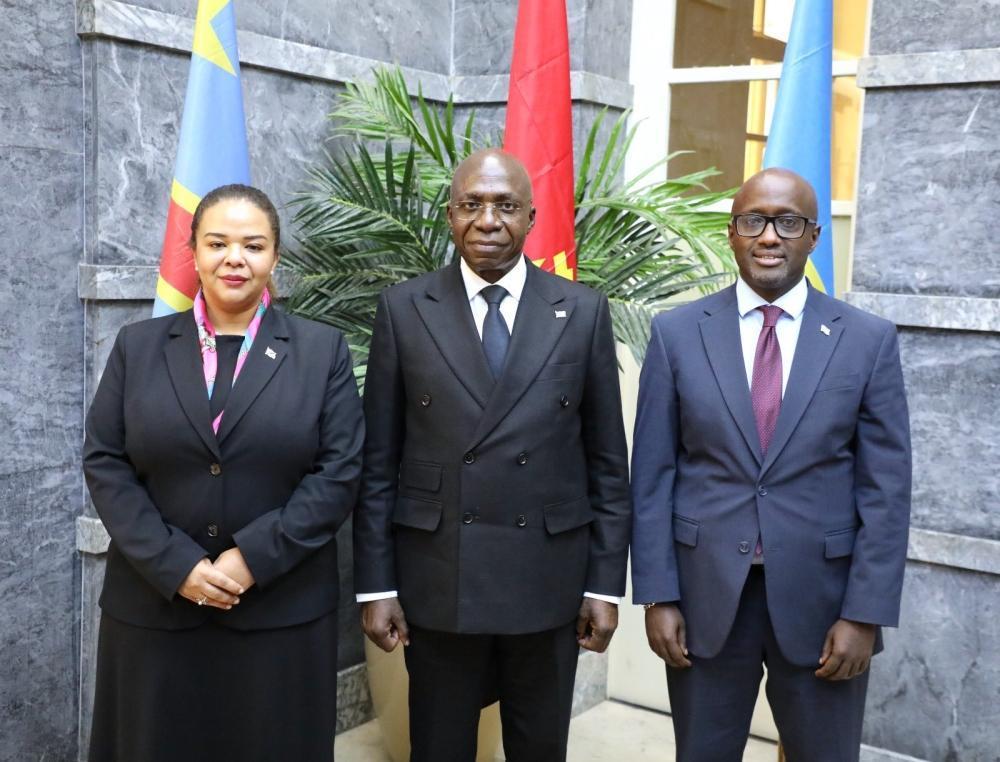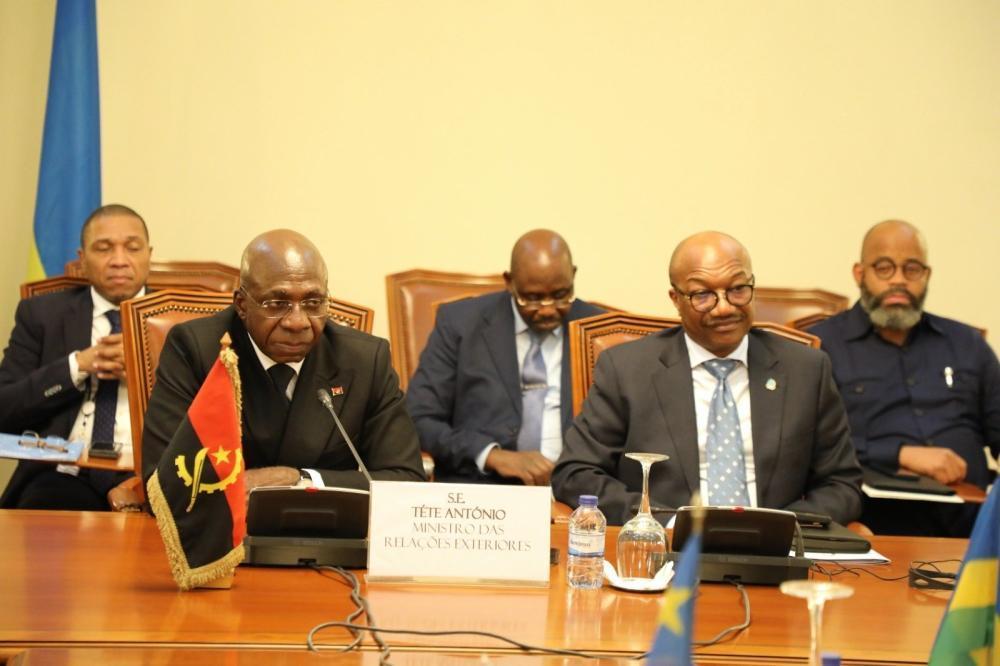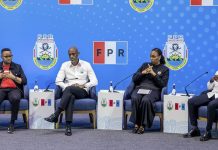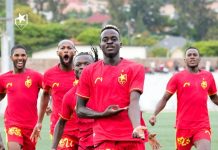Africa-Press – Rwanda. The second ministerial meeting between Rwanda and DR Congo hosted by Angola’s Ministry of Foreign Affairs, on Tuesday, July 30, agreed on the establishment of a ceasefire that comes into effect from midnight on August 4.
The meeting on the security and peace situation in eastern DR Congo was held in Luanda under the mediation of Angolan foreign minister Tete Antonio. It was attended by Antonio’s Rwandan and Congolese counterparts, Olivier Nduhungirehe and Therese Kayikwamba Wagner, respectively.
The second ministerial meeting on the security and peace situation in eastern DR Congo took place in Luanda, Angola, on July 30.
The ceasefire which will take effect on August 4 will be supervised by an ad hoc mechanism, according to Rwanda’s Ministry of Foreign Affairs and Cooperation.
“Rwanda remains committed to achieving lasting peace in the region by addressing the root causes of the conflict,” the ministry said in a post on X.
Nduhungirehe said the 12-hour meeting was held in a “constructive spirit,” and had “a successful outcome.”
The 2nd Ministerial Meeting on the Security and Peace Situation in the Eastern DRC, held in Luanda, Angola, came to a close. The meeting agreed to a ceasefire between parties to the conflict in Eastern DRC starting August 4, under the supervision of an enhanced ad hoc mechanism…. pic.twitter.com/arLVMG3rWU
— Ministry of Foreign Affairs & Int’l Cooperation (@RwandaMFA) July 31, 2024
The first meeting was held in March.
The latest such Rwanda-DR Congo meeting mediated by Angola comes barely a month after foreign ministers from the two countries “agreed to meet at the earliest in the framework of the Luanda process,” during a meeting of East African Community (EAC) ministers of foreign affairs, held in Zanzibar, Tanzania, so as to address securities issues that have led to diplomatic tensions.
Angola’s President Joao Lourenço is the mediator between Rwanda and DR Congo, under the African Union-backed Luanda Process initiated in mid-2022 to mend diplomatic relations that were affected by the unending conflict in North Kivu Province where a Congolese government-led coalition has been battling M23 rebels, a Congolese rebel group fighting to protect persecuted communities in DR Congo.
The 2nd Ministerial Meeting between the DRCongo and Rwanda, held today in Luanda under the mediation of Angola, agreed on the establishment of a ceasefire that comes into effect from midnight on 4 August 2024. pic.twitter.com/uYqeDhcoIy
— Ministério das Relações Exteriores/MRE -(Angola) (@angola_Mirex) July 30, 2024
DR Congo accuses Rwanda of supporting the rebels, allegations the Rwandan government dismisses.
Rwanda accuses the Congolese armed forces (FARDC) of integrating the FDLR, a UN-sanctioned militia linked to the 1994 Genocide against the Tutsi in Rwanda. The militia was formed in DR Congo, in mid 2000, by the masterminds of the 1994 genocide against the Tutsi in Rwanda. In the conflict in North Kivu, the FDLR is part of the FARDC coalition that also includes Burundian forces, troops from the Southern African Development Community (SADC), local groups known as Wazalendo and European mercenaries.
For years, Rwanda has requested the Congolese government to disarm the genocidal militia and address the root causes of the conflict in its eastern provinces, to no avail. The root causes of the violence in eastern DR Congo include decades-long persecution and alienation of Kinyarwanda-speaking communities.
(L-R) Therese Kayikwamba Wagner, DR Congo’s Minister of Foreign Affairs, Angolan foreign minister Tete Antonio and Rwanda’s Minister of Foreign Affairs and International Cooperation, Olivier Nduhungirehe
The FDLR continues to spread its violent genocide ideology and hate speech, targeting the Congolese Tutsi communities.
Decades of conflict have produced hundreds of thousands of refugees in the region, with Rwanda hosting more than 100,000 of them. Many of the refugees, mostly from DR Congo, have lived in Rwandan camps for nearly 30 years.
The ministerial meeting on the security situation in eastern DR Congo was mediated by Angolan foreign minister Tete Antonio, on Tuesday, July 30. COURTESY
By August last year, Rwanda had received more than 11,500 refugees from eastern DR Congo since 2022, according to the United Nations High Commissioner for Refugees.
The first cohort of Congolese refugees arrived in Rubavu District, Western Province in November 2022, when the conflict between the Congolese armed forces and M23 rebels moved closer to the Rwandan border.
For More News And Analysis About Rwanda Follow Africa-Press

